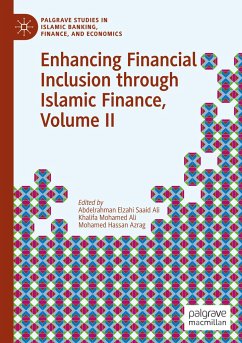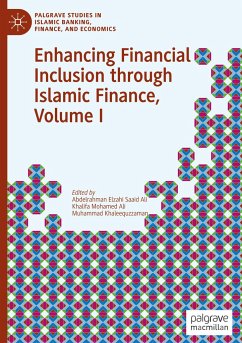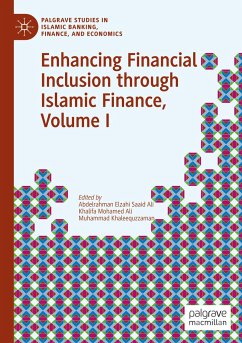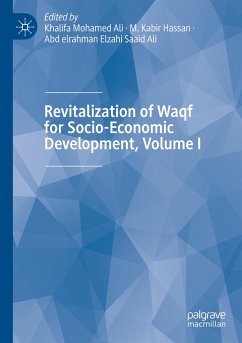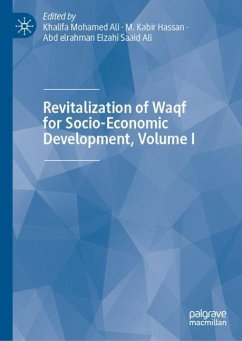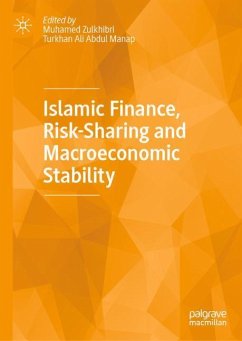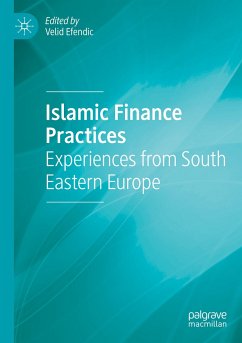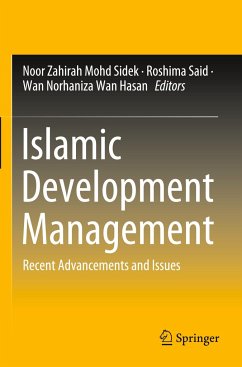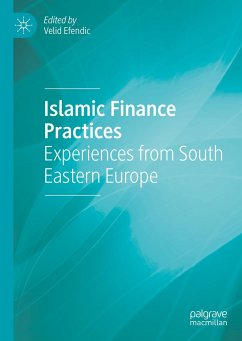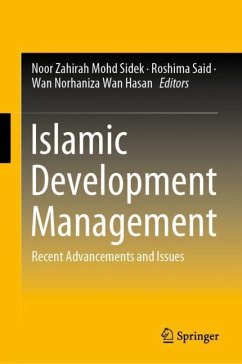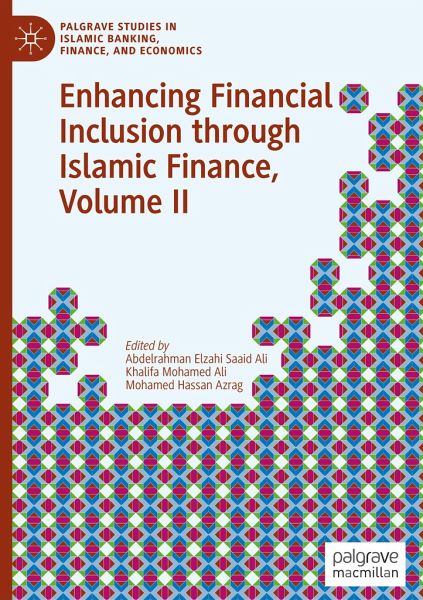
Enhancing Financial Inclusion through Islamic Finance, Volume II

PAYBACK Punkte
38 °P sammeln!
This book is the second of two volumes which highlight the concept of financial inclusion from the Islamic perspective. An important element of the Sustainable Development Goals (SDGs), financial inclusion has been given significant prominence in reform and development agendas proposed by the United Nations and G-20. The significance of Islamic financial inclusion goes beyond improved access to finance to encompass enhanced access to savings and risk mitigation products, as well as social inclusion that allows individuals and companies to engage more actively in the real economy. It represents...
This book is the second of two volumes which highlight the concept of financial inclusion from the Islamic perspective. An important element of the Sustainable Development Goals (SDGs), financial inclusion has been given significant prominence in reform and development agendas proposed by the United Nations and G-20. The significance of Islamic financial inclusion goes beyond improved access to finance to encompass enhanced access to savings and risk mitigation products, as well as social inclusion that allows individuals and companies to engage more actively in the real economy. It represents one of the important drivers of economic growth.
This volume explores the financial risks associated with lending to low-income groups due to high poverty levels and the lack of collateralization mechanisms. The first book on the market to provide empirical evidence of Islamic microfinance, deposit insurance and micro-entrepreneurship through the analysis of models and country case studies, this edited collection will be of value to those researching development finance, financial inclusion and Islamic finance.
This volume explores the financial risks associated with lending to low-income groups due to high poverty levels and the lack of collateralization mechanisms. The first book on the market to provide empirical evidence of Islamic microfinance, deposit insurance and micro-entrepreneurship through the analysis of models and country case studies, this edited collection will be of value to those researching development finance, financial inclusion and Islamic finance.





